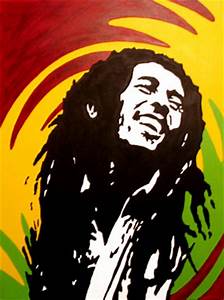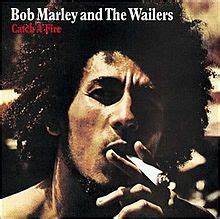Catch A Fire
| Bob MarleyCatch A Fire
Catch a Fire is the fifth studio studio album by the reggae band The Wailers, released in April 1973. It was their first album released by Island Records. After touring and recording in the United Kingdom with Johnny Nash, Nash's departure to the United States left the band without enough money to return home; they approached producer Chris Blackwell, who agreed to advance the Wailers money for an album and paid their fares back to Jamaica, where they recorded Catch a Fire. The album features nine songs, two of which were written and composed by Peter Tosh and the remaining seven of which were written and composed by Bob Marley. After Marley's return to London to present the tapes to Blackwell, the producer reworked the tracks with contributions by Muscle Shoalssession musician Wayne Perkins, who played guitar on two overdubbed tracks. -Wikipedia
Critic Reviews
Show All-
 Rolling Stone
Rolling Stone
(1973) As a group, the Wailers show remarkable polish on record, and personal appearances should prove most interesting to watch. They display fantastic breadth in what would seem to be a restrictive format. But then, isn’t that what was always so great about rock & roll?
-
 Rolling Stone
Rolling Stone
(2011) Many listeners will no doubt still prefer the familiar mix, but the original is important not just as a point-of-origin artifact but because its stark clarity takes us straight to the heart of Marley and the Wailers — into the calming, hymnlike melodies, the impassioned voices, the sense of hope and faith that gave these songs the resonance of evangelical crusades.
-
 BBC Music
BBC Music
(2008) Reggae, up until this point, was a niche genre, bought in the UK by ex-pat West Indians (and the occasional skinhead); it was even less widespread in the States. Catch A Fire changed all that. Without it Bob Marley would never have become a figurehead and no one outside of the Caribbean would have heard of Bunny Wailer or Peter Tosh either. For this alone Chris Blackwell should be canonised.
-
 Sputnik Music
Sputnik Music
From this very first major label LP on, it is clear that Bob Marley & The Wailers had created something transcendent. Even on the apolitical love songs that make up the middle of the album, the sound still manages to feel definitive, as if Marley was not just singing about love but doing for love what his political songs do for his righteous cause. The lush backing vocals and instrumental textures from Tosh and Bunny Wailer, the unstoppable groove of Aston and Carlie Barrett, and the sheer intensity of Bob Marley's presence combine for a sound of near-universal significance, but Catch A Fire retains a street rawness particular to the appeal of the early Wailers, an appeal that did not diminish so much as simply change over the length of their recording career.
-
 All Music
All Music
Marley would continue to achieve great critical and commercial success during the 1970s, but Catch a Fire is one of the finest reggae albums ever. This album is essential for any music collection.
-
 Pop Matters
Pop Matters
(2001) Overdubs notwithstanding, tracks like "Stir It Up" and "Concrete Jungle" neatly encapsulate the Wailers' range; the band was capable of playful love songs, well within the pop tradition, and songs concerned with social justice and a history of oppression that expanded the horizons of the early '70s pop idiom.
-
 Bored and Dangerous Blog
Bored and Dangerous Blog
I can’t say anything on Catch a Fire surprised me in anyway. But that ‘s not to say that I was disappointed or underwhelmed in anyway. Reggae is just so well defined, and Marley is such a big part to that definition for the general public, that his sound has been ingrained in me long ago, without ever actively seeking it out. I can see where reggae might have its place, but even the best bits of Catch a Fire just reiterated that I’ll always prefer ska, reggae’s snot nosed, hyperactive bastard child.
-
 Only Solitaire
Only Solitaire
In other words, for a reggae album, this one's pretty diverse, and even if some might complain that Marley and company hadn't yet reached a certain degree of technical and arranging perfection, there's a youthful rawness and drive that are certainly lacking on some of the later, more 'wisened up' efforts. Sure ain't a simple coincidence that it's titled Catch A Fire - there's so much fire on here that it would be hard to recapture the same amount of it on subsequent records. Close to perfection.
-
 Bob Marley & The Wailers
Bob Marley & The Wailers
All in all, Catch A Fire was a landmark release that introduced a major "new" force into the world of music, and it still stands as a strong statement by a great band whose leader would later conquer the world.
-
 Fat Pigeon Live
Fat Pigeon Live
The content was both socially aware and militant. It dealt with the despair of life in the ghetto in opening track Concrete Jungle while Slave Driver tackles the legacy of slavery. Stir It Up is more upbeat, even romantic, while the laid-back Kinky Reggae is another highlight. Throughout, the strong bass-lines and upbeat guitar made this a superb first taste of reggae.
-
 MOJO
MOJO
The album that made Bob Marley – and reggae – global superstars. Peerless songs, breathtaking musicianship and, 40 years on, still box fresh.



Rate This Album and Leave Your Comments